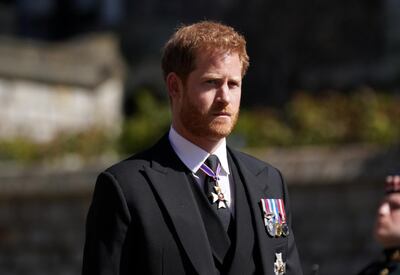The Duke of Sussex marked Earth Day by paying tribute to his grandfather's work supporting the natural world, highlighting "generations of conservation champions".
Prince Harry said he felt “proud and energised” to continue the legacy of his grandfather and others, and called on society to maintain efforts to “look at the strengthening and protecting of biodiversity”.
Prince Philip, who died two weeks ago, was an early proponent of environmentalism, warning of the dangers of plastic in a speech in the 1960s.
But he was also a fan of hunting and shooting, which most environmental activists oppose.

Philip ate muesli 20 years before most people and drove around London in an electric car to fight pollution.
Harry spoke in his role as president of African Parks, a non-profit organisation that manages 19 national parks, in partnership with governments and local communities in 11 countries, including Zambia, Rwanda and Chad.
“As we now begin to move towards an era of global recovery and regeneration, it’s critical that we continue to look at the strengthening and protecting of biodiversity, not just as a value we hold but as a responsibility that is vital to our way of life," he said.
“On this Earth Day, I reflect on generations of conservation champions, including my late grandfather, and feel proud and energised to continue doing my part in this legacy.
“This year especially, I join the incredible African Parks team and communities around the world in shared dedication to our environment and collective well-being.”
Harry has worked with African Parks since 2016 when he helped the organisation to complete its relocation of 500 elephants in Malawi, and is supporting its ambition to manage 30 parks by 2030.
An African Parks promotional video was re-released and in a voiceover for the film Harry speaks about the need to provide resources for national parks and protected areas so they can deliver essential services such as clean air and water, food security, carbon sequestration and jobs.
Peter Fearnhead, chief executive of African Parks, said: “While we created African Parks 20 years ago to address the challenge of failing protected areas in Africa, today we see these effectively managed landscapes helping to address some of the most pressing challenges of our times, including climate change, pandemics, security and human well-being.
“Alongside the dedication and commitment of Prince Harry, and with our transformational funders and all our government partners, we are realising the value of these wild areas by ensuring that the people who live within or around them truly benefit from them being conserved.
“It is a sure way forward in helping to create a sustainable future for local communities and for our planet.”

